- Home
- WELCOME
- COMMITTEES
- PROGRAMME
- SPEAKERS
- AWARDS
- ABSTRACTS
- REGISTRATION
- ACCOMMODATION
- GENERAL INFORMATION
- SPONSORS
- PREVIOUS EDITIONS
- Home
- WELCOME
- COMMITTEES
- PROGRAMME
- SPEAKERS
- AWARDS
- ABSTRACTS
- REGISTRATION
- ACCOMMODATION
- GENERAL INFORMATION
- SPONSORS
- PREVIOUS EDITIONS

SPEAKERS
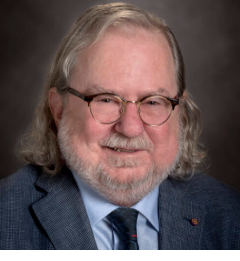
Allison, James
James Allison
James Allison is an American immunologist and Nobel laureate who holds the position of professor and chair of immunology and executive director of immunotherapy platform at the MD Anderson Cancer Center at the University of Texas. His discoveries have led to new cancer treatments for the deadliest cancers. He is also the director of the Cancer Research Institute (CRI) scientific advisory council. James has a longstanding interest in mechanisms of T-cell development and activation, the development of novel strategies for tumor immunotherapy, and is recognized as one of the first people to isolate the T-cell antigen receptor complex protein. In 2014, he was awarded the Breakthrough Prize in Life Sciences and in 2018, he shared the Nobel Prize in Physiology or Medicine for the discovery of CTLA-4 as immune checkpoint inhibitor and as a revolutionary immunotherapy in cancer.
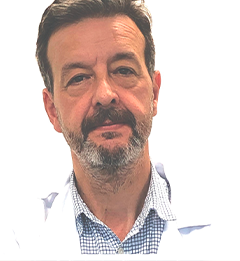
Álvarez Vallina, Luis
Luis Alvarez-Vallina
Luis Alvarez-Vallina (LAV), MD, PhD, is immunologist. Currently is the head of the H12O/CNIO Cancer Immunotherapy Clinical Research Unit (12 de Octubre University Hospital/Spanish National Cancer Research Centre-CNIO), and leader of the Immuno- Oncology and Immunotherapy Group at the Instituto de Investigación Hospital Universitario 12 de Octubre. During his post-doctoral stay at the Medical Research Council Centre for Protein Engineering (Cambridge, UK), where he worked with Robert E. Hawkins and Sir Gregory Winter (2018 Nobel Laureate in Chemistry), he designed the first generation of chimeric antigen receptors (CAR) bearing costimulatory domains (CD28). This finding represents a milestone in the evolution of the CAR concept. In 2014 he and joined the University Aarhus in Denmark as Associated Professor at the Department of Biological Engineering where he led the Immunotherapy and Cell Engineering lab. LAV has participated in international consortiums financed by the European Union, and his experience includes the generation of innovative display platforms to select human recombinant antibodies in vivo in tumor-bearing mice (in vivo phage antibody display) and in vitro on complex antigens mixtures expressed on tumor cell surfaces (T lymphocyte display), the generation of multivalent and multispecific antibodies (LAV is the inventor of Trimerbody technology platform) and the development of a novel cancer immunotherapy strategy (STAb-T cells). This strategy is based on the secretion of small-sized bispecific T cell engagers (TCE) by engineered human cells. The group has shown that several types of human cell carriers can be genetically modified to secrete functionally active TCE from tumor-resident cells or tumor-distant cells. LAV is a co- founder and scientific advisor of LeadArtis and STAb Therapeutics.
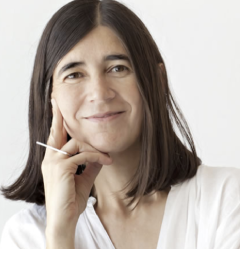
Blasco, María
Maria Blasco
Maria Blasco was born in Alicante in 1965. She obtained her PhD in 1993 for her research at the Centro de Biología Molecular Severo Ochoa (UAM-CSIC), under the supervision of Margarita Salas. That same year, Blasco joined the Cold Spring Harbor Laboratory in New York (USA) as a Postdoctoral Fellow under the leadership of Carol W. Greider (who was to win a Nobel Prize in 2009). In 1997, she returned to Spain to start her own research at the Centro Nacional de Biotecnología in Madrid. She joined the Centro Nacional de Investigaciones Oncológicas (CNIO) in 2003 as Director of the Molecular Oncology Programme and Leader of the Telomeres and Telomerase Group. Her scientific career focuses on the role of telorerases and cancer with seminal contributions in the field, including the discovery of telomeric RNAs, whose expression is altered in cancer.
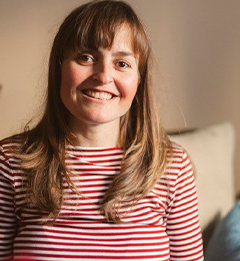
Casanova Acebes, María
Dra. Casanova-Acebes
Dr. Casanova-Acebes, was recently appointed as Assistant Professor at Centro Nacional de Investigaciones Oncológicas (C.N.I.O) where she leads the laboratory of Cancer Immunity. Her lab focuses on uncovering the role of myeloid cells in metastasis initiation and progression utilizing both murine models and human tissue biopsies.She received her PhD in Cellular Biology and Genetics under the supervision of Dr. Andrés Hidalgo (CNIC) at the Universidad Autónoma de Madrid, Spain; which was awarded the best PhD thesis in her department in 2014-2015. Her Ph.D. studies were focused on understanding neutrophil aging mechanisms and how the removal of aged neutrophils triggers bone marrow remodeling and the homeostatic release of hematopoietic progenitors from bone marrow into the blood (Cell, 2013).
She joined Dr. Miriam Merad's laboratory in April 2015 after being awarded a long-term postdoctoral fellowship from the Human Frontiers Science Program, one of the most prestigious international grants for postdoctoral researchers. During her PhD, she published in high-impact journals (Cell 2013 >400 citations, Nature Immunology 2013, J. Exp. Med 2018) and received an international EMBO short-term fellowship for Ph.D. students. Her research has also been selected for oral presentations in international meetings, and she has obtained several prizes for best oral presentation at these meetings. During her postdoctoral research Dr. Casanova-Acebes studied the role of macrophage ontogeny in the context of lung adenocarcinoma (Nature 2021), breast (Nature Communications 2018), and ovarian cancer (Nature Communications 2020). In her studies she discovered that embryonic and adult macrophages have a distinct temporal and spatial distribution in the tumor microenvironment. Her most recent work (Nature 2021) highlights the key contribution of embryonic macrophages to tumor outcomes and uncovers novel macrophage determinants of tumor immunity. As a result of her findings, she was granted the 2020 AACR-AstraZeneca Immuno-oncology Research Fellowship (Grant Number: 20-40-12) to study macrophage determinants of therapy resistance in cancer.
Her remarkable contributions to the study of macrophage ontogeny, myeloid dysfunction in cancer and macrophage modulation in immunotherapy are reflected by invitations to the most prestigious conferences in the field: Keystone Symposia, SITC and the European Congress of Immunology. She has received funding as an independent researcher from CRIS Cancer Foundation, the Ramón y Cajal National Program, Fero Foundation, La Caixa Research Foundation, and more recently, from Horizon H2020 programs holding an international TRANSCAN project focused on targeting lipid metabolism in macrophages in the tumor microenvironment of ovarian cancer, and the prestigious ERC Starting grant focused on dissecting circadian-driven mechanism in lung tumors.
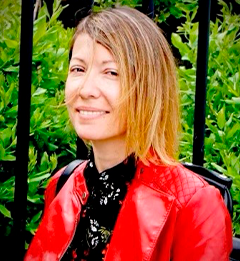
Cuadrado, Sara
Dra. Sara Cuadrado-Castaño
Dr Sara Cuadrado-Castaño (PhD, Biological Science) was born in Salamanca (Spain) and graduated in Biology (2005) and Biochemistry (2012) at the University of Salamanca (USAL, Salamanca, Spain). She obtained her PhD with honors at the same university and her work on the development of the cancer therapeutic rNDV-B1/Fas virus was highlighted by the Spanish Ministry of Science and Innovation, granting her with the Archimedes National Award for Young Investigators in the discipline of Biomedicine (2007). In 2012, Dr Cuadrado-Castaño joined the laboratory of Professor Adolfo García-Sastre at the Icahn School of Medicine at Mount Sinai (ISMMS, New York, US) as a post-doctoral fellow with the goal of implement and expand the field of oncolytic viruses (OVs) for cancer treatment at the Department of Microbiology at ISMMS. Her postdoctoral work was focused on understanding the immunology behind the anti-tumor effect of RNA viruses to rationally design novel treatment strategies and targeted viruses that could be applicable to different cancer models. In 2018, she was promoted to Research Assistant Professor in the Dep. of Microbiology where she continues leading the Cancer Virotherapy Research Program. As today, her research portfolio has been expanded to different non-human avian virus (APMVs and IBDV) and non- pathogenic versions of Influenza A virus. She keeps “hands on” working on the development and pre- clinical assessment of targeted OVs-based solutions to a broad range of cancers such as lung carcinoma, melanoma, brain, breast, and colon carcinomas, teaming up with extraordinary national and international experts in cancer and immunology, as well as engaging with private companies to expedite breakthrough solutions to the clinic.Dr Cuadrado-Castaño is inventor in several patents related to the use of OVs in Cancer. She also serves as a consultant for Accurius Therapeutics, Inc (Boston, MA, (USA))
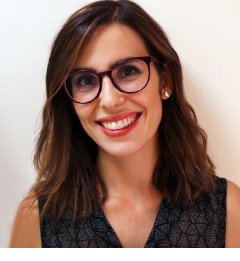
Elia, Ilaria
Dra. Ilaria Elia
Dr. Ilaria Elia is an assistant professor at KU Leuven, leading the laboratory of Metabolic Regulation of Cell Function since 2021.Dr. Elia conducted her Ph.D. studies in the laboratory of Prof. Sarah-Maria Fendt (VIB, KU Leuven). There, she investigated the metabolic requirements of metastasizing breast cancer cells in lung metastasis. Her work resulted in publishing nine research articles in high-impact journals, two of which were her sole first-author publications. She made a significant discovery, revealing the essential role of the amino acid proline in generating ATP during metastatic colonization (Elia et al., Nature Communications, 2017). Additionally, she uncovered the crucial role of pyruvate- driven α-ketoglutarate metabolism in extracellular matrix remodeling, despite the transcriptional regulation of the rate-limiting enzyme P4HA (Elia et al., Nature, 2019). This research was highlighted in a Research Watch article by Cancer Discovery and a Research Highlight article by Nature Reviews Cancer. Her doctoral work was highly appreciated in the field of cancer metabolism as she was rewarded the best talk prize in the “Metabolism & Cancer Symposium” (Palavas-Les Flots, France) and got a prestigious travel grant for the Keystone symposia (Whistler, Canada).
Afterwards, she pursued a postdoc on immunometabolism at Harvard Medical School in the laboratories of Prof. Marcia Haigis and Prof. Arlene Sharpe. She has successfully applied for funding to cover her postdoctoral studies (EMBO and CRI) and presented her work at several international conferences. During her postdoctoral work, Dr. Elia optimized a co-culture system replicating the interaction between cancer cells and immune cells in an in vivo tumor microenvironment-like setting. This system allowed the discovery of two targets. First, she identified that pyruvate anaplerosis drives succinate signaling and anti-tumor immunity (Elia et al,. Cell Metabolism, 2022). Second, her research unveiled the enhancement of immunotherapy strategies through one-carbon metabolism (Rowe*, Elia* et al., in final revision with Cancer Discovery).
In August 2021, she started her laboratory at KU Leuven, focusing on the metabolic regulation of immune cell function in metastatic cancer. She has secured significant funding for her independent research group, presented at international conferences, wrote two review articles, and undertook several institutional responsibilities. Finally, she has recently received the prestigious FEBS Excellence Award.
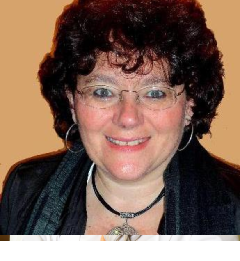
González, África
Prof. África González-Fernández
Prof. África González-Fernández (MD, PhD, Immunologist) was born in Madrid (Spain) and studied Medicine and Surgery in the University of Alcalá de Henares (Madrid, Spain) with special honours. She obtained her PhD in the same University and performed the speciality in Immunology as Medical Internal resident (4 years) at the Hospital Puerta de Hierro (Madrid). She spent 4 years as post doc with Dr. Cesar Milstein (Nobel Prize winner for the monoclonal antibody technology) in the Laboratory of Molecular Biology-Medical Research Council (LMB-MRC) in Cambridge (UK). She returned to Spain becoming Full Professor of Immunology in the University of Vigo (Spain). She is leading a research group in the field of immune response to vaccines, Nanomedicine, toxicity and immunogenicity to nanomaterials. She was Director of the Biomedical Research Center (CINBIO) in the University of Vigo (2009-2019), considered an excellent center by Xunta de Galicia. She was the former President of the Spanish society for Immunology (2016-2020). She has published over 180 papers and book chapters, some of them in very top journals such as Nature, Nature Nanotechnology, Cell, ACS-Nano, PNAS. She is regularly invited to give conferences in several international and national congresses, workshops. She developed 4 patents and is co-promoter of the spin-off company called “NanoImmunoTech” (2009- currently). She has been nominated for the EU women innovator Prize (2017), is member of Editorial Boards, and coordinator of institutional EU projects, and summer schools. She is very active in media, press, TV, radio about the COVID pandemic.
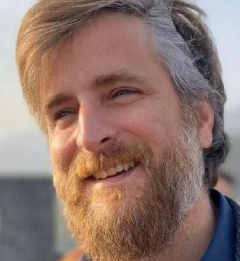
Ginhoux, Florent
Florent Ginhoux
Florent Ginhoux, obtained his PhD in 2004 from the University Pierre et Marie CURIE, Paris VI. As a postdoctoral fellow, he joined the Laboratory of Miriam Merad in the Mount Sinai School of Medicine (MSSM), New York where he studied the ontogeny and the homeostasis of cutaneous dendritic cell populations, with a strong focus on Langerhans cells and Microglia. In 2008, he became an Assistant Professor in the Department of Gene and Cell Medicine, MSSM and member of the Immunology Institute of MSSM. He joined the Singapore Immunology Network (SIgN), A*STAR in May 2009 as a Principal Investigator. He is a Web of Science Highly Cited Researcher since 2016. He is also an Adjunct Visiting Associate Professor in the Shanghai Immunology Institute, Jiao Tong University, in Shanghai, China since 2015 as well as Adjunct Associate Professor in the Translational Immunology Institute, SingHealth and Duke NUS, Singapore since 2018. He is also starting a new laboratory focusing on pediatric cancers in the INSERM unit 1015 in Gustave Roussy Hospital, Villejuif, France.
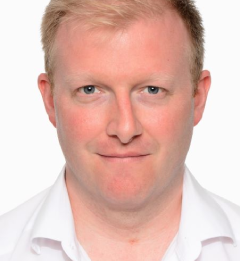
Hutchinson, James
James Hutchinson
James Hutchinson is an Interventional Immunologist working the Department of Surgery, University Hospital Regensburg, Germany. His primary focus is establishment and maintenance of immunological tolerance in human health and disease. James has a special interest in the contribution of allograft-infiltrating macrophages in regulating T cell immunity within solid organ transplants, especially developing novel immunotherapies to target them. He also works on new computational methods for classifying patients using flow cytometry data to support clinical decision-making.
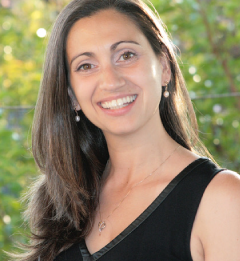
Idoyaga, Juliana
Juliana Idoyaga, Ph.D.
Juliana Idoyaga, Ph.D., is an Assistant Professor in the Department of Microbiology and Immunology at Stanford University School of Medicine where she studies the basic biology of dendritic cells and their applications towards therapeutics. Dr. Idoyaga received her BSc in Biology and Immunology from the Buenos Aires University in Argentina. She then completed her PhD in Immunology and Biomedical Sciences with honors at the National Autonomous University of Mexico. She performed her postdoctoral training in the laboratory of Cellular Physiology and Immunology at The Rockefeller University under the mentorship of the late Nobel Laureate Dr. Ralph Steinman. She joined Stanford Faculty in July 2014. Dr. Idoyaga’s research interests have spanned dendritic cell subset tissue localization, function, and the development of dendritic cell-targeted vaccines and therapies. The current areas of research in the Idoyaga Lab include: (1) unraveling dendritic cell heterogeneity in humans and tissues; (2) dissecting the origin and functional specialization of emerging dendritic cell subsets; and (3) harnessing the endowed function of dendritic cell subsets for immunotherapies and vaccines.
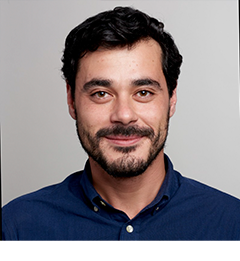
Lozano-Ojalvo, Daniel
Dr. Daniel Lozano-Ojalvo
During his postdoctoral fellow at the Icahn School of Medicine at Mount Sinai Hospital, Dr. Daniel Lozano-Ojalvo deeply studied the evolution, heterogeneity, and function of different subsets of peanut-specific T cells in allergic pediatric subjects. Currently, Dr. Lozano-Ojalvo works as a “Ramón y Cajal” researcher at the Instituto de Investigacioìn en Ciencias de la Alimentacioìn (CIAL-CSIC) and investigates the role played by food antigen-specific T cells in the maintenance and treatment of allergies to egg, milk, and nuts.
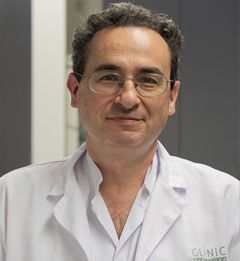
Juan Otero, Manel
Manel Juan-Otero, MD, PhD
Immunology Service. Hospital Clínic de Barcelona – IDIBAPS (Research Institute) & Hospital Sant Joan de Deu, University of BarcelonaDr. Manel Juan is the head of the Service of Immunology (SI) at “Hospital Clínic de Barcelona” (HCB) for adults and responsable of Immunotherapy Platform at the paediatric “Hospital Sant Joan de Deu Scientific” (HSJD), and leader in “Institut d’Investigacions Biomèdiques August Pi i Sunyer” (IDIBAPS) of the group "Immunogenetics and Immunotherapy of Immune and Autoinflammatory Responses". He is Immunologist, specializing in Cell and Gene Immunotherapy, and assistant professor in the School of Medicine at University de Barcelona (UB).
Dr. Juan completed its MD and PhD at the University of Barcelona. He finished her residency in Immunology at HCB. Since 1996 to 2007 he worked as immunologists at Hospital Germans Trias i Pujol and as head of subprocess at BST (Catalonian Blood and Tissue Bank), being assistant professor of Autonomous University of Barcelona (UAB). In 2007, he returned to HCB as a head of section in the SI, becoming in 2020 (until now) head of SI of HCB and assistant professor of UB.
Dr. Juan holds leads a translation program focused in Cell and Gene Immunotherapy [mainly in adoptive cell immunotherapy (ACT), and specially in CAR-T production]. Next to several proposals for vaccination with monocyte-derived Dendritic Cells and Tumor Infiltrating Lymphocytes (TILs) as ACT, the more relevant products developed under his direction are a CART19 (ARI-0001) and CART-BCMA (ARI-0002) tested in more tan 200 patients and which results in several clinicals trials deserved for ARI-0001 the authorization of use (under the rule of Hospital Exemption) by Spanish drug agency (AEMPS) and is under evaluation by European Medicine Agency (EMA) after PRIME (Priority Medicine) designation. Along his more than 30 years as immunologist, he has authored over 160 peer-reviewed publications, 7 books as publisher and received 17 projects as principal investigation for over 6 million € in per-reviewed funding, being inventor in 6 patents
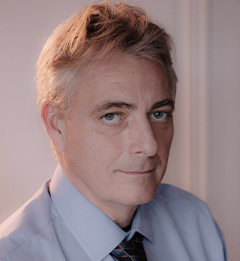
Kroemer, Guido
Guido Kroemer
Guido Kroemer is currently Professor at the Faculty of Medicine of the University of Paris, Director of the research team "Metabolism, Cancer and Immunity" of the French Medical Research Council (INSERM), Director of the Metabolomics and Cell Biology platforms of the Gustave Roussy Comprehensive Cancer Center, and Hospital Practitioner at the Hôpital Européen George Pompidou, Paris, France. Dr. Kroemer’s work focuses on the pathophysiological implications of cell stress and death in the context of aging, cancer and inflammation. With close to 1600 articles including 67 papers in the ‘CNS’ Journals Cell (15 papers), Nature (6), Nature Medicine (21), Science (18) and Science Translational Medicine (7) and an h-index of 281, he is Europe’s most cited researcher in biomedical research. His contributions have been recognized with multiple awards including the most prestigious cancer research prizes from Belgium (Baillet-Latour Health Prize), France (Prix Duquesne, Prix Léopold Griffuel, Grand Prix Ruban Rose) and Switzerland (Brupbacher Prize), the European Union-sponsored Descartes Prize, as well as the most important Italian science prize (Lombardia & Ricerca Prize). He received two European Research Council (ERC) Advanced Investigator Awards. Kroemer is the founding Editor-in-Chief of six journals: Cell Death & Disease, Cell Stress, OncoImmunology, MedComm Cancer, Microbial Cell, and Molecular & Cellular Oncology. He is member of the Austrian Academy of Sciences, Academia Europaea, European Academy of Sciences (EAS), Chinese Academy of Engineering (CAE), European Academy of Sciences and Arts (EASA), European Academy of Cancer Sciences (EACS), European Molecular Biology Organization (EMBO), German Academy of Sciences (Leopoldina), Institut Universitaire de France (IUF) and Spanish Royal Academy of Sciences. He is the Founding President of the European Academy of Tumor Immunology (EATI).
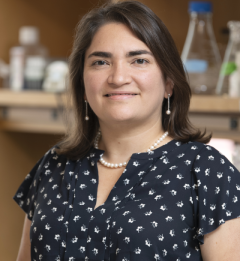
Maus, Marcela
Dra. Marcela Maus
Dra. Marcela Maus is the Director of Cellular Immunotherapy at the Massachusetts General Hospital Cancer Center and an Attending Physician in the Bone Marrow Transplant and Cell Therapy division of Hematology/Oncology at the Massachusetts General Hospital. Dr. Maus is an Assistant Professor at Harvard Medical School, an Associate Member of the Broad Institute of Harvard and MIT, and an Associate Member of the Ragon Institute of MGH, MIT, and Harvard.Dr. Maus is a translational physician-scientist in the field of immunology, particularly as it relates to cancer. Her research program spans basic mechanisms of human immunology to design and test novel immune-based therapeutic interventions in vitro, in mouse models, and in patients. Her group has initiated novel clinical trials of cell therapies in lymphoma, myeloma, glioblastoma, and has ongoing projects to enhance CAR T cells for multiple solid tumors.
Dr. Maus received her S.B. from the Massachusetts Institute of Technology, and her M.D. and Ph.D. degrees from the University of Pennsylvania. Dr. Maus trained in internal medicine at University of Pennsylvania and in hematology and medical oncology at Memorial Sloan Kettering, and is board-certified in these three disciplines. Her laboratory research training was focused on gene and cell therapies, and occurred in the laboratories of Dr. Katherine High, Dr. Michel Sadelain, and Dr. Carl June.
Title:
Marcela Maus, MD, PhD
Associate Professor of Medicine, HMS
Director of Cellular Immunotherapy, MGH
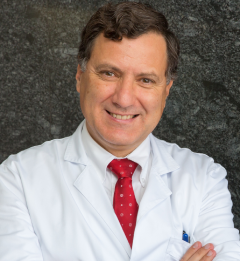
Melero, Ignacio
Ignacio Melero
Ignacio Melero is a full Professor and co-chair of the Department of clinical Immunology and Immunotherapy at the Clinica Universidad de Navarra. Dr Melero earned his medical degree from the Universidad de Navarra and completed his residency training in Clinical Immunology and his PhD at the Hospital Universitario de la Princesa, Madrid. In 1994, Dr Melero joined Bristol-Myers Squibb, Seattle, USA, as a researcher in cancer immunotherapy, where he contributed pioneering work in the field of co-stimulation of antitumor immune responses and the use of immunostimulatory monoclonal antibodies such as those acting on 4-1BB (CD137). Back to Spain in 1998 he started research on cancer immunotherapy focusing on combined synergistic strategies. For his works Dr Melero has been awarded the BIAL Medicine Grand Award and the Francisco Cobos prize among other honors.Dr Melero’s research interests focus on translational research in cancer immunotherapy with cell, gene and monoclonal antibody-based strategies. Dr Melero has served as Principal Investigator in numerous cancer immunotherapy clinical trials sponsored by pharmaceutical industry and other institutions. He has authored over 300 peer-reviewed publications and currently serves as Senior Editor for Clinical Cancer Research, Scientific Editor for Cancer Discovery, and Section Editor for the Journal for Immunotherapy of Cancer. Member of the scientific advisory boards of institute Curie (Paris), institute the investigación biomédica de Granada, Netherlands cancer Institute (NKI) and member of the scientific council of Institute Gustave Roussy
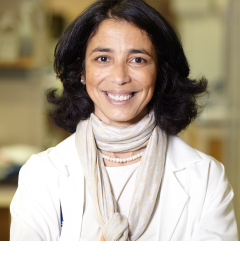
Merad, Miriam
Miriam Merad
Miriam Merad, M.D.; Ph.D. is the Director of the Precision Immunology Institute at Mount Sinai School of Medicine in New York and the Director of the Mount Sinai Human Immune Monitoring Center (HIMC). Dr. Merad is an internationally acclaimed physician-scientist and a leader in the fields of dendritic cell and macrophage biology with a focus on their contribution to human diseases. Dr. Merad identified the tissue resident macrophage lineage and revealed its distinct role in organ physiology and pathophysiology. She established the contribution of this macrophage lineage to cancer progression and inflammatory diseases and is now working on the development of novel macrophage-targeted therapies for these conditions. In addition to her work on macrophages, Dr. Merad is known for her work on dendritic cells, a group of cells that control adaptive immunity. She identified a new subset of dendritic cells, which is now considered a key target of antiviral and antitumor immunity. Dr. Merad leads the Precision Immunology Institute at the Icahn School of Medicine (PrIISM) to bring immunology discoveries to the clinic. PrIISM integrates immunological research programs with synergistic expertise in biology, medicine, technology, physics, mathematics and computational biology to enhance our understanding of human immunology. She also founded the Human Immune Monitoring Center at Mount Sinai, one of the world’s most sophisticated research centers, which uses cutting-edge single-cell technology to understand the contribution of immune cells to major human diseases or treatment responses. . Dr. Merad has authored more than 200 primary papers and reviews in high profile journals. Her work has been cited several thousand times. She receives generous funding from the National Institutes of Health (NIH) for her research on innate immunity and their contribution to human disease, and belongs to several NIH consortia. She is an elected member of the American Society of Clinical Investigation and the recipient of the William B. Coley Award for Distinguished Research in Basic and Tumor Immunology. She is the President-elect of the International Union of Immunological Societies (IUIS). In 2020, she was elected to the National Academy of Sciences in recognition of her contributions to the field of immunology.

Montserrat Pulido, Núria
Núria Montserrat
My research interests are focused on understanding how human tissues and organs are formed to target genetic and/or environmental factors perturbing these processes. Towards this goal in the laboratory we combine a wide range of multidisciplinary approaches making use of bioengineering to externally guide and control the generation and differentiation of the unique cell type amenable for these interventions in vitro: the so called human pluripotent stem cells. Our research has faithfully shown on the development of new approaches to generate these cell sources through somatic reprogramming and the design and implementation of technical advances to externally control and guide their differentiation into tissue- or organ-like culture systems in vitro. Collectively, these advances have allowed us to study genetic and systemic conditions explaining early cellular and molecular mechanisms driving heart, kidney, and the retina development as well to exploit these culture systems to target human disease.My research activity was recognized with the prestigious ERC-Starting grant (call 2014) allowing me to establish my laboratory as Junior Group Leader at the Institute of Bioengineering of Catalonia (IBEC) since December 2015. By 2019, I was promoted as ICREA Research Professor and Senior Group Leader being recently awarded with an ERC Consolidator Grant (call 2020) to pursue our studies on the generation of organ-like tissue models, the so-called organoids, to target congenital defects of the kidney and the urinary tract. I was awarded by the prestigious EMBO with the Young Investigator Prize by 2020.

Padmanee, Sharma
Padmanee Sharma
Pam Sharma is an immunologist and oncologist at the University of Texas MD Anderson Cancer Center in Houston, Texas. She holds the position of professor of genitourinary medical oncology and immunology in the Division of Cancer Medicine where she specializes in renal, prostate, and bladder cancers. Sharma studies the treatment of cancer with immunotherapy. Her doctoral work demonstrated that cells expressing thymus-leukemia (TL) on their surface could be recognized by the Immune system and killed. In 2003, she was the lead author on a study of another tumor antigen, NY-ESO-1 in bladder cancer and she won an ASCO Young Investigator Award in 2003 to pursue this work. Her current research focuses on the study of the immunological responses in patients with genitourinary malignancies after treatment with various immunomodulatory agents, such as NY-ESO-1 DNA vaccine and anti-CTLA4 antibody therapy.
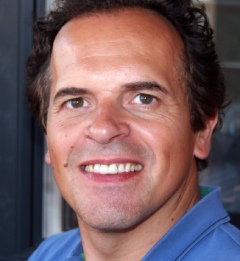
Pereira, Felipe
Dr. Filipe Pereira
Filipe Pereira, Ph.D. is a Professor of Molecular Medicine in the Faculty of Medicine at Lund University in Sweden. Dr. Pereira is recognized for his work at the interface of cellular reprogramming and immunology and for fostering development of reprogramming-based immunotherapies.For the last 20 years he has contributed to the fields of cellular reprogramming and hematopoietic specification. Dr. Pereira received his Ph.D. at Imperial College London where he established cell fusion and heterokaryons to study mechanisms of reprogramming towards pluripotency. During his postdoctoral training at the Icahn School of Medicine at Mount Sinai in New York, he brought cellular reprogramming concepts to hematopoeisis for the first time. Dr. Pereira started his independent group at Lund University in 2017 and has uncovered new mechanisms underlying hematopoietic reprogramming and definitive hematopoiesis specification. He pioneered cellular reprogramming approaches in immunology by inducing dendritic cells from fibroblasts and cancer cells. This conceptual shift opened exciting opportunities to merge cellular reprogramming and cancer immunotherapy. Dr. Pereira co-founded Asgard Therapeutics, which received investment from leading European VCs to translate in vivo dendritic cell reprogramming to benefit cancer patients.
For his scientific accomplishments and innovation efforts, he received several notable scientific awards, including ERC Consolidator and Proof-of-Concept Grants, the Novo Nordisk Foundation Distinguished Innovator Grant and the entrepreneurship award from Mount Sinai-KiiLN. Dr. Pereira is a fellow of the Swedish Wallenberg program in Molecular Medicine and Editor-in-Chief of the journal Cellular Reprogramming. He was also awarded a medal of merit from his hometown in Portugal.
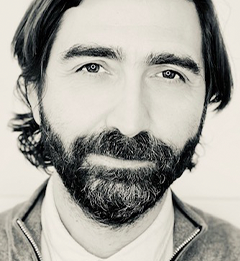
Perez Martínez, Antonio
Dr. Antonio Perez-Martinez
Dr. Antonio Perez-Martinez (1974) holds a degree in Medicine and Surgery from the Faculty of Medicine of Granada (1998). He completed his Pediatrics residency at the Niño Jesús Children's Hospital in Madrid (1999-2003), graduating a PhD from the Faculty of Medicine at UAM in 2005. He has completed three postdoctoral stays at the Hematopoietic Transplantation and Cellular Therapy Departments of St. Jude Hospital (Memphis, USA) (2007-2008), at the Tübingen Children's Hospital in Germany (2011), and at the Mason Cancer Center at the University of Minnesota (USA, 2017). He is a Full Professor at the Faculty of Medicine of the Autonomous University of Madrid (2017) and he is the Director of Pediatrics Department in the same institution since 2019. In 2018, he was designated Head of the Pediatric Hemato-Oncology Service at La Paz University Hospital. In 2023 he joined the Clinical Research Program at the National Cancer Research Center where he leads the new Pediatric Cancer Unit.In addition to his clinical experience, Dr. Perez-Martinez has a strong background in basic research. He has been trained in all strategic health actions at the Carlos III Institute of Health (Rio Hortega, Miguel Servet I, Research projects, Independent research, BAE) and is recognized as an expert in the treatment of NK cells, hematopoietic stem cell transplantation, and advanced CAR-T therapies. His career is a clear example of a physician-researcher profile. The Clinical Research Unit in Pediatric Oncohematology that he leads since 2013 is accredited by the European consortium Innovative Therapies for Children with Cancer (ITCC). To date, he has published over 170 scientific articles and has supervised eight PhD theses, all in the field of allogenic hematopoietic stem cell transplantation and cellular therapy. Since the beginning of his research career, he has obtained 8 competitive public grants (PI09/02393, PI12/01622, PI15/00973, PMP21/00073, PI18/01301, PS09/02393, PS12/01622, PI22/01226); thanks to his preclinical studies in advanced CAR-T cell therapies, he has obtained two national competitive grants (CAR4SAR and CINK CAR), as well as a project granted under the Fight Kids Cancer program of the European Science Foundation. Recently, the Madrid Community, within its 2022 Biomedicine R&D program, awarded him with a 3-year project for the generation of new CAR-T and STAb-T cell immunotherapies (Next-generation-CAR-T_MAD).
Dr. Perez Martinez actively works with several national reference networks in the field of Pediatric Hematology and Oncology. He is the national coordinator of the Advanced Cellular Therapy Group (GETH-TC_TACAR) within the Spanish Hematopoietic Transplantation Group (GETH) (2020). This appointment highlights the importance of representation in Pediatrics in a context predominantly dominated by adult specialists. He is a member of the Immunotherapy Group of the Spanish Society of Pediatric Hematology and Oncology (SEHOP) and the Advanced Therapy Research Network (RICORS-TERAV-2022). He is member of the American Society for Transplantation and Cellular Therapy (ASTCT) since 2023 and is also an active collaborator of the European initiative RESTORE (https://www.restore-horizon.eu/). Since 2016, he has collaborated with Peru and Colombia for the development of advanced therapy CART medications for pediatric and adolescent patients in these countries. He has participated in multiple clinical trials, mainly academic, being the promoter in 28 of them, all focused on the field of advanced immunotherapy in pediatric oncology.
There is active collaboration between Dr. Pérez Martínez's research group and three pharmaceutical companies for optimizing the CAR-T strategy in the pediatric population (Novartis, Celyad, and MiltenyBiotec) and maintains an agreement with Eusapharma for the development of their advanced therapy project in childhood brain tumors. Dr. Pérez Martínez holds two patents in the field of immunotherapy: Anti-CXCR4 antibody combined with activated and expanded Natural Killer cells for cancer immunotherapy (P3765519A1. United States. 2018); Memory T Cells as adoptive cell Therapy for Viral Infection (EP20382850. Spain. 2020).
He currently has three Research sexennials recognized by the National Commission for the Evaluation of Research Activity (CNEAI). He is a reviewer of numerous scientific journals (BMT, BBMT, etc.) and an editor of Plos One and Frontiers. He is an evaluator of the Carlos III Health Institute in the Río Hortega (2012), BAE (2015), and Health Research Projects (2019-2022) programs.
He has received various national and international awards in the field of pediatric oncology, such as the Social Research Prize from the Caja Madrid Foundation (2005), the international Sanofi My child matters award (2007), the national health sciences award from the Ministry of Defense [(Comandante Fidel Pagés Miravé, (2011)], the best national childhood cancer project award from the Spanish Association Against Cancer (2016), the Best-in-class (BIC) award for the Best CAR-T Reference Unit (2020). In 2021, one of his articles received the award from the GETH and SEHOP scientific societies for the best scientific publication. Recently, Dr. Pérez Martínez has received the APSATUR-Girasoles para Izarbe Scholarship for the Memory-like NK cells: a new therapy for Ewing sarcoma (MEMO4EWING-2022) project and received the FLT 2022 award (Leukemia and Lymphoma Foundation). Lately, part of his team has made very significant advances in cellular therapy against COVID-19. His work in this field has been recognized with several awards: he was one of the 20 finalists out of over 700 projects presented at the virtual Hackathon "A Response to COVID-19 #VenceAlVirus organized by the Ministry of Science, Universities and Innovation "Project Capture" 2020; ISCT 2021 top Scoring Abstract Award (2021), Healthstart Madrid "Project Release" organized by the madri+d Foundation (2021). Best abstract-oral presentation Elevator Pitch [Timing of donor selection on CD45RA-memory T cells as adoptive cell therapy for COVID-19 (ISCT 2022)]. In 2022, he was also awarded the best publication in the maternal-infant and adolescent area [(IdiPaz 2022. Phase I dose-escalation single center clinical trial to evaluate the safety of infusion of memory T cells as adoptive therapy in COVID-19 (RELEASE)].
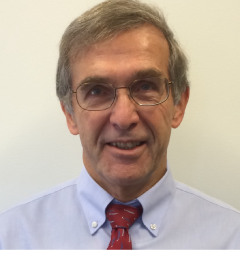
Sampson, Hugh
Dr. Hugh A. Sampson
Dr. Hugh A. Sampson is the Kurt Hirschhorn Professor of Pediatrics at the Icahn School of Medicine in New York and has over 40 years’ experience in translational research focusing on food allergic disorders and basic immunologic mechanisms responsible for these disorders. His research has been funded continuously by grants from the NIH, including the Principal Investigator for the Consortium for Food Allergy Research. He has authored/co-authored over 550 original articles and 90 book chapters, and co-edited 5 books, primarily on clinical and immunopathogenic aspects of food allergic disorders, and chaired working groups that produced standardized criteria for diagnosing anaphylaxis and conducting double-blind placebo-controlled oral food challenges (Practall Guidelines). Dr. Sampson was elected to membership in the National Academy of Medicine of the National Academies in 2003 for his research accomplishments. He is the past-president of the American Academy of Asthma, Allergy & Immunology, past Chairman of the Section on Allergy & Immunology of the American Academy of Pediatrics, past Board member of the World Allergy Organization, and has served on the Editorial Boards of five allergy journals. Dr. Sampson has trained over 40 post-doctoral allergy/immunology fellows, many of whom are now leaders in the field of food allergy.
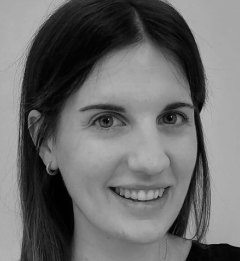
Vilarrasa Blasi, Roser
Dr Roser Vilarrasa-Blasi studied Biomedicine at the University of Barcelona, Spain, where she also completed her master’s degree in Molecular Biotechnology. She undertook her Ph.D. under the supervision of Dr. Martin-Subero at the August Pi I Sunyer Biomedical Research Institute (IDIBAPS) in conjunction with the University of Barcelona. Roser’s doctoral thesis focused on studying epigenetic processes and particularly the role of chromatin architecture in B-cell development and cancer. She characterised the dynamics of genome organization during B-cell maturation and neoplastic transformation (e.g. chronic lymphocytic leukemia or mantle cell lymphoma). This work led her to identify new potential therapeutic targets in B-cell tumors. Dr Vilarrasa-Blasi is now an EMBO-MSCA postdoctoral fellow in the Vento-Tormo group at the Wellcome Sanger Institute, United Kingdom. She is currently combining cell and tissue engineering with single cell and computational technologies to reconstruct the human bone marrow microenvironment with special interest in early B-cell differentiation.
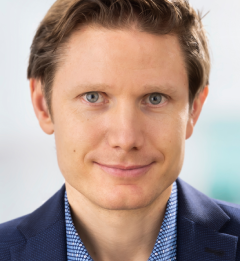
Zeiser, Robert
Robert Zeiser, MD
University of Freiburg, Freiburg im Breisgau, GermanyRobert Zeiser is Full Professor of Medicine and Director of the Division of Tumor Immunology at the Department of Hematology, Oncology, and Stem-Cell Transplantation at the Medical Center-University of Freiburg in Freiburg, Germany. His work can be divided into clinical responsibilities, clinical and laboratory-based research, and teaching activities. Professor Zeiser’s laboratory research is focused on graft-versus-host disease, tumor biology, in vivo imaging, and signaling. In particular, his research group has used different imaging techniques, including bioluminescence imaging, magnetic resonance imaging, fluorescence imaging, and positron emission tomography/computerized tomography, to monitor the fate of different cell types from living animals. His group has made major contributions to the field of pre-clinical and clinical research, with publications in New England Journal of Medicine, Nature Medicine, Journal of Experimental Medicine, Blood, Science Translational Medicine, Nature Communications, and Journal of Clinical Investigation, and has received several awards in Germany, Europe, and the USA and research grants from multiple funding agencies. Professor Zeiser has authored or co-authored > 270 peer-reviewed publications and 14 book chapters, and has served as a reviewer for Science, Nature Medicine, Nature Immunology, Nature Methods, Nature Reviews Immunology, Nature Reviews Cancer, New England Journal of Medicine, Lancet Haematology, Blood, and other journals. Professor Zeiser is Section Editor of Blood and an expert reviewer for research funding bodies in Germany, France, Israel, China, the Netherlands, Austria, the UK, Poland, Belgium, and Switzerland, as well as the European Union. In 2023 Professor Zeiser received an ERC Advanced grant, the most prestigious and competitive funding scheme for researchers in Europe. He is Director of the Collaborative Research Center SFB 1479 and Director of the Division of Tumor Immunology at the University of Freiburg.

Zitvogel, Laurence
Prof. L. Zitvogel, MD
Prof. L. Zitvogel, M.D (Clinical Oncology), PhD (Tumor Immunology), full professor at the University Paris Saclay, graduated in Medical Oncology in 1992. Scientific career first at the University of Pittsburgh, US. Became Research Director at Institut National de la Santé et Recherche Médicale U1015, and Scientific Director of the Clinicobiome program at Gustave Roussy, the largest cancer Center in Europe in 1998. Actively contributed to the field of cancer immunology and immunotherapy. Pionner of the concepts of immunogenic cell death and gut microbiota in cancer immunosurveillance and therapies. Recipient of many awards: French National Academy of Medicine, Translation Research INSERM Prize, the ASCO-SITC, Brupbacher Awards 2017, ESMO Immuno-Oncology Award 2017, Baillet Latour Prize 2019 and the Griffuel Prize 2019.Director, Clinicobiome at Gustave Roussy Cancer Center (GRCC)
Research Director U1015 INSERM
Full Professor, PU-PH Faculté Médecine, University Paris Saclay
Network Coordinator RHU Immunolife, Prevalung EU, Oncobiome H2020
Fidelle M et al. Science 2023 Jun 9, 380 (6649): eabo2296.
Fluckiger A et al. Science. 2020 Aug 21;369(6506):936-942.
Roberti MP, et al. Nat Med. 2020 Jun;26(6):919-931.
Routy B, et al. Science. 2018 Jan 5;359(6371):91-97.
Vétizou M, et al. Science. 2015 Nov 27;350(6264):1079-84.
Viaud S, et al. Science. 2013 Nov 22;342(6161):971-6.
Zitvogel L, et al. Science. 2019 Nov 29;366(6469):1077-1078.
Zitvogel L, et al. Science. 2018 Mar 23;359(6382):1366-1370.
